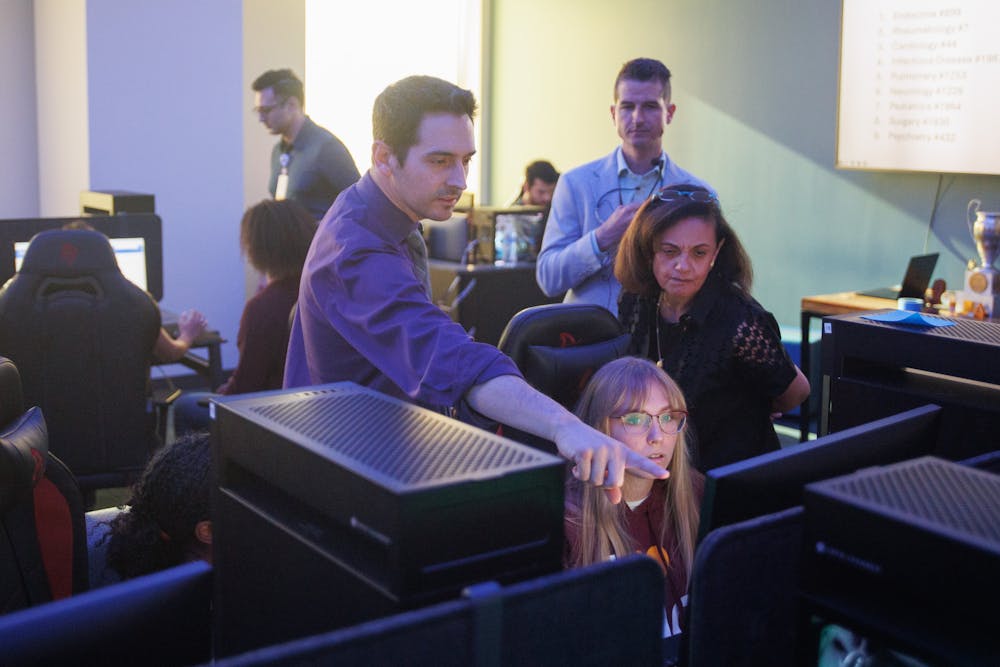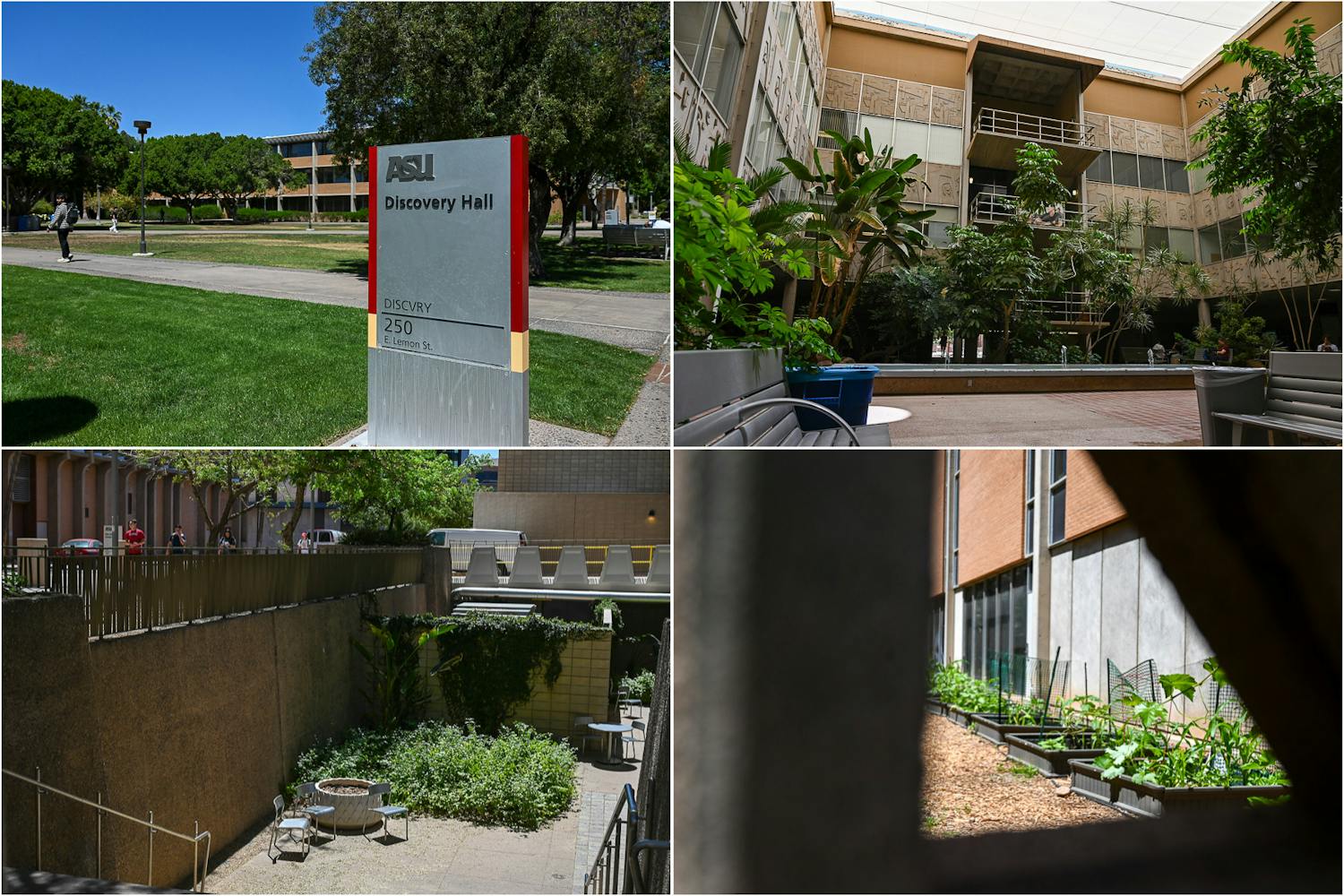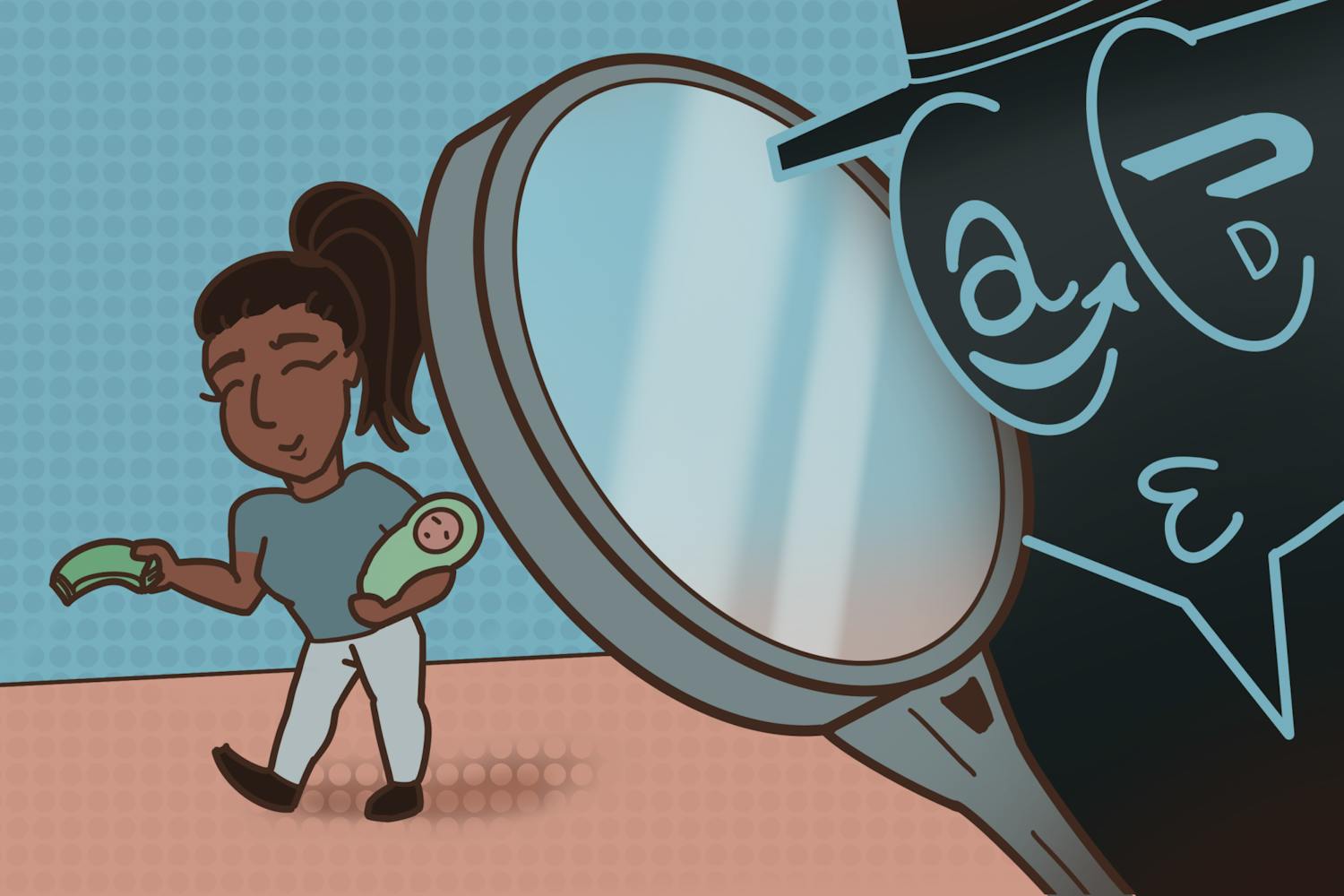In a fusion of cutting-edge artificial intelligence and hands-on medical training, ASU hosted the MedSim.AI Challenge, offering students a chance to navigate real-world diagnostic scenarios using an innovative new tool.
Held at the Esports Lounge in the School of Arts, Media and Engineering on Thursday, the event brought together pre-health students in small teams to engage in simulated medical cases.
The tool behind the challenge — MedSim.AI — was developed by the team of John Shufeldt, an ASU alumnus, emergency physician and educator involved in shaping the University's new School of Medicine and Advanced Medical Engineering.
MedSim.AI uses interactive avatars and artificial intelligence to replicate the complexities of patient care. The idea came about in a conversation about the Holocaust Museum with Sherine Gabriel, the executive vice president of ASU Health.
"She talked about the Holocaust Museum and how they're interviewing Holocaust survivors and then turning that into an interactive avatar. So future generations could really experience these Holocaust survivors," Shufeldt said.
With a newfound inspiration, Shufeldt began collaborating with ASU's AI developers to turn the concept into a dynamic learning platform.
"It's an education tool that's meant to be fun and educate pre-health students, any students interested in health, about the process of making a diagnosis and interacting with patients," Gabriel said.
Today, MedSim.AI features over 2,500 unique patient scenarios. Students interact with virtual patients via voice or text, asking clinical questions, ordering diagnostic tests and ultimately proposing a diagnosis. They receive feedback not just on clinical accuracy, but also on their bedside manner.
"The first time I did it, I got the right diagnosis, thankfully," Shufeldt said.
However, the activity also grades your interaction. The program told Schufeldt he could go a lot slower and be more gentle with the patient.
Among the winning team was Mili Makwana, a recent information technology graduate from ASU, who joined the challenge to explore the overlap between technology and medicine.
"I currently work for a medical software company, so I'm fascinated by the combination of AI and the medical, and this challenge definitely gave us the mix of both of them, and it was great," Makwana said.
Her teammate, Alvaro Rodriguez Mendoza, a senior studying biomedical sciences, was drawn in after his class was canceled.
"I got curious because I'm hoping to apply to medical school in the future and looking to see ... if we can diagnose some patients," Mendoza said.
Mendoza said the simulation challenged him to think critically about how to communicate with patients.
"It would ask, 'Hey, I don't, I don't understand this terminology. Can you explain it to me?'" Mendoza said.
Makwana also noted that while the tool was helpful, it had its quirks.
"The AI keeps asking the same question ... At the end, we were unsure if we made our point clear (about) what is wrong," Makwana said.
After each round, cases were reviewed by a physician who offered feedback on clinical reasoning and communication skills critical to a medical career. Winners received prizes, but all teams walked away with something more valuable: experience.
Gabriel emphasized that ASU Health is a truly cross-disciplinary initiative, and also shared her vision for the University's upcoming School of Medicine and Advanced Medical Engineering.
READ MORE: ASU announces site of new medical school in downtown Phoenix
"We're trying to educate a different kind of physician, a different kind of health provider — someone who's not only going to be a great doc but also someone fluent in AI and engineering," Gabriel said.
According to Gabriel, students in the new medical school will graduate with both a doctorate in medicine and a master's degree in medical engineering.
The MedSim.AI Challenge marks just one piece of ASU Health's broader mission. The University is expanding its health ecosystem through new initiatives, including the School of Public Health Technology and the Health Observatory at ASU — efforts aimed at transforming health outcomes across Arizona.
Edited by Sophia Ramirez, Abigail Beck and Natalia Jarrett.
Reach the reporter at ammaarzindani@asu.edu.
Like The State Press on Facebook and follow @statepress on X.




